Best Supplements for Heart Rhythm
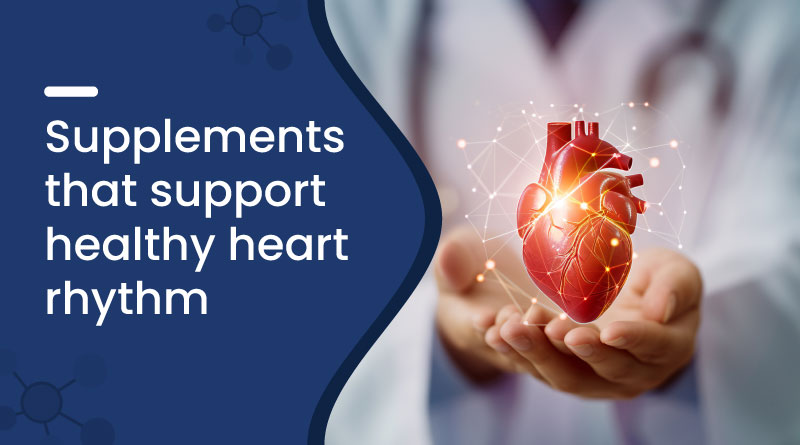

Maintaining a healthy heart rhythm is essential for overall cardiovascular wellness. Irregular heartbeat can cause fatigue, dizziness, or serious issues like stroke. Fortunately, certain supplements support a healthy heart rhythm by nourishing the heart muscles, improving electrical conductivity, and reducing inflammation.
Let’s explore which supplements can help stabilize heart rhythm, how they work, and what you should keep in mind before taking them.
How Do Supplements Support a Healthy Heart Rhythm?
Supplements work by restoring essential nutrients that help regulate electrical impulses in the heart. These impulses control your heartbeat. When certain vitamins or minerals are lacking, your heart's rhythm may become irregular or erratic.
Key ways supplements help:
- Regulate electrolyte balance
- Reduce inflammation in heart tissues
- Support nerve signaling
- Improve blood flow and oxygenation
Is Magnesium Good for a Healthy Heart Rhythm?
Yes, magnesium is crucial for maintaining a healthy heart rhythm. It plays a key role in regulating the movement of calcium and potassium in heart cells, which is necessary for a normal heartbeat.
Low magnesium levels are often linked with:
- Premature heartbeats
- Atrial fibrillation
- Heart palpitations
Magnesium glycinate and taurate are heart-friendly forms.
Can Omega-3 Fatty Acids Help Stabilize Heart Rhythm?
Absolutely. Omega-3 fatty acids, especially EPA and DHA, help reduce inflammation and improve electrical signaling in heart tissue. Studies have shown that omega-3s may lower the risk of arrhythmias and sudden cardiac death.
Benefits include:
- Lowering resting heart rate
- Reducing blood pressure
- Supporting heart muscle function
Fatty fish, flaxseeds, and algae oil are good natural sources.
Does CoQ10 Support a Healthy Heart Rhythm?
Coenzyme Q10 (CoQ10) supports energy production in heart cells and improves oxygen usage. It's particularly useful for people with congestive heart failure or those on statin medications.
How CoQ10 helps:
- Boosts mitochondrial function
- Reduces oxidative stress
- Improves blood vessel function
It supports heart endurance and stable rhythm.
Can Potassium Help Regulate Heart Rhythm?
Yes, potassium is one of the most important electrolytes for heart rhythm. It works closely with sodium to transmit electrical signals in the heart.
A deficiency can cause:
- Muscle cramps
- Irregular heartbeat
- Weakness or fatigue
Bananas and greens provide potassium, but excess intake needs supervision.
Is Taurine Effective for Supporting Heart Rhythm?
Taurine helps balance electrolytes and stabilize heart cells. It may reduce premature ventricular contractions (PVCs) and other rhythm abnormalities.
How it works:
- Balances calcium and potassium flow
- Acts as a natural anti-arrhythmic agent
- Enhances muscle contractility
Taurine is often used in combination with magnesium for better results.
Which Vitamins Are Essential for Heart Rhythm Health?
Several vitamins contribute to heart rhythm stability:
- Vitamin D: Low levels are linked with increased arrhythmia risk.
- Vitamin B1: Supports nerve signals to the heart.
- Vitamin E: Offers antioxidant protection to heart tissues.
- Vitamin C: Supports vascular health and reduces inflammation.
These vitamins help the heart stay energized, oxygenated, and protected.
List of Heart Health Supplements
| Product Name | Uses |
|---|---|
| Cozy Q 100 Capsule | Supports heart health and boosts energy by improving mitochondrial function. |
| Cozy Q 300 Capsule | Helps improve heart muscle strength and manage heart-related fatigue. |
| Omega 369 Capsules | Promotes heart health, reduces cholesterol, and supports brain function. |
| Omega King Omega 3 Fatty Acid Capsules | Supports cardiovascular health and reduces inflammation in the arteries. |
| Zeelab Omega 3 Fish Oil Capsules | Improves heart rhythm and helps lower triglyceride levels. |
| Vitazem 5G Softgel Capsule with Omega 3 | Enhances blood circulation and maintains healthy cholesterol levels. |
| Vitazem Gold | Supports heart and nerve health with antioxidants and essential vitamins. |
| Rosze Gold 10 Capsule | Manages cholesterol and improves overall heart function. |
| Rosze Gold 20 Capsule | Reduces LDL cholesterol and protects blood vessels from damage. |
What Precautions Should You Take Before Using Supplements for Heart Rhythm?
- Always consult a doctor before starting any supplement, especially if you have a heart condition.
- Do not mix multiple supplements without medical advice.
- Stick to recommended doses—too much potassium or magnesium can be harmful.
- Monitor symptoms and report any irregular heartbeat or discomfort.
Frequently Asked Questions
Q. Can supplements alone fix an irregular heartbeat?
A. No. Supplements can support heart rhythm, but medical conditions require professional treatment and monitoring.
Q. Can you take magnesium and potassium together?
A. Yes, but only under supervision. Both affect heart rhythm and must be balanced properly.
Q. How long do supplements take to improve heart rhythm?
A. It varies. Some may notice benefits in a few weeks, but long-term use is often needed for stable results.
Q. Can stress affect heart rhythm even if I take supplements?
A. Yes. Chronic stress impacts heart rate and should be managed alongside supplementation.
Q. Are herbal supplements helpful for heart rhythm?
A. Some herbs like hawthorn or motherwort show promise but lack conclusive evidence. Always consult a doctor first.
Conclusion
Maintaining a healthy heart rhythm is about balance—of nutrients, lifestyle, and medical care. Supplements like magnesium, omega-3s, CoQ10, and taurine offer natural support by strengthening your heart’s electrical system, improving circulation, and protecting heart tissues.
However, these supplements should complement—not replace—medical advice and treatment. With the right approach, you can support your heart’s rhythm and lead a healthier life.
Omega-3 Fatty Acids (1000mg)
60 Softgel Capsules
Omega 3 (Flaxseed Oil) (500mg) + Omega 6 (Borage Oil) (136mg) + Omega 9 (Olive Oil – Oleic Acid) (200mg) + Hydrogenated Vegetable Oil + Gelatin (Capsule Shell)
60 capsules per jar
Recent Blogs
Disclaimer : Zeelab Pharmacy provides health information for knowledge only. Do not self-medicate. Always consult a qualified doctor before starting, stopping, or changing any medicine or treatment.

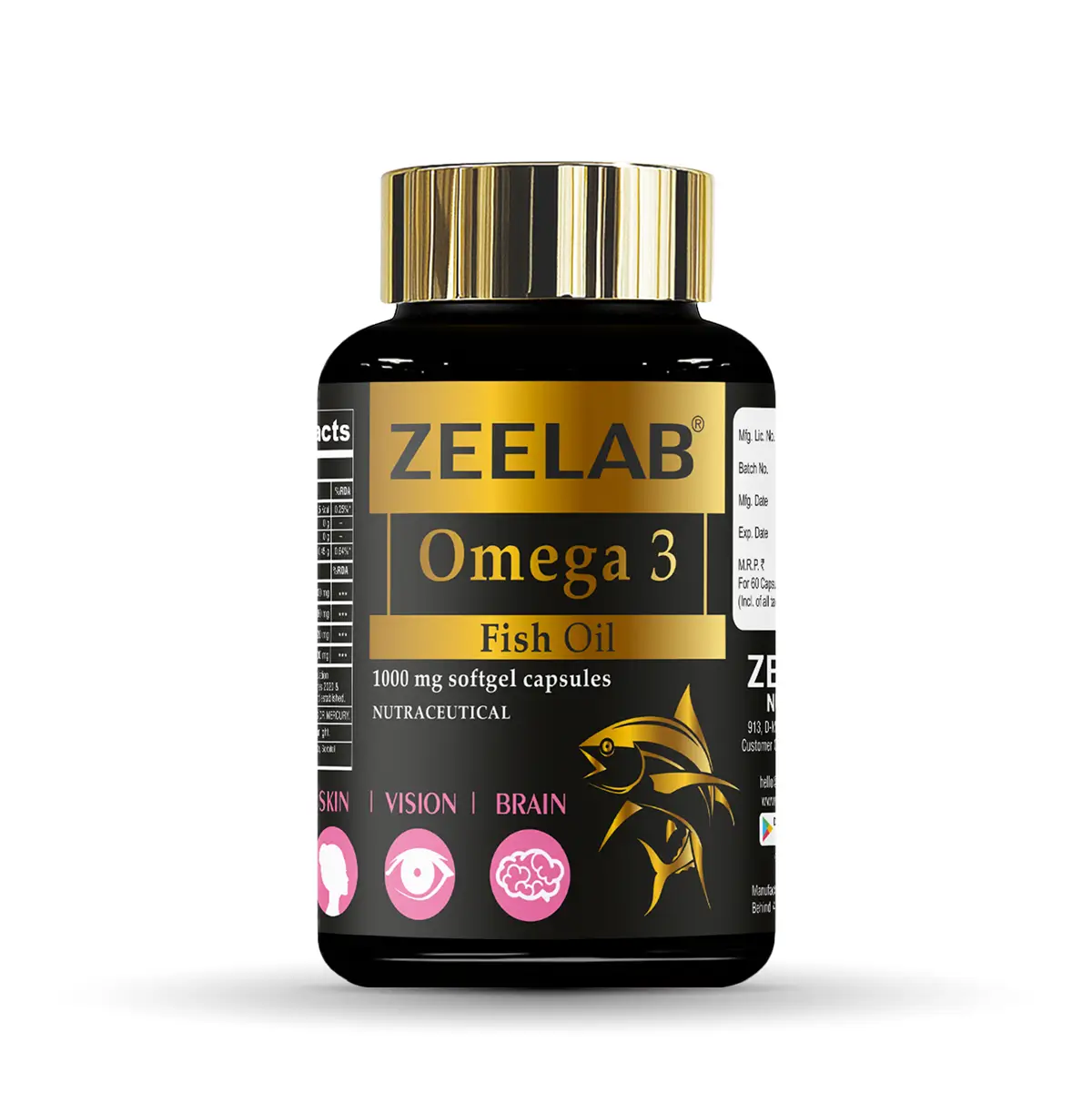
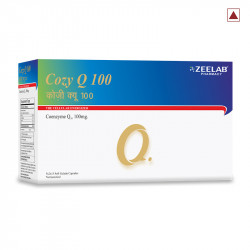
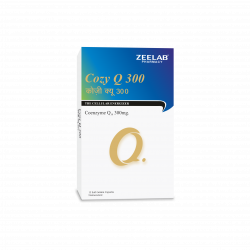
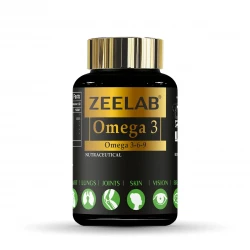















 Added!
Added!